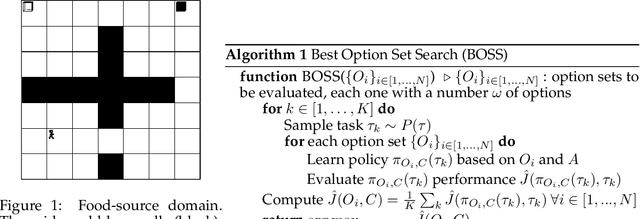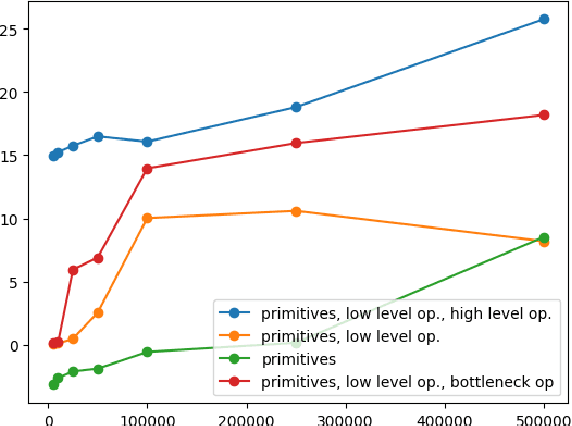Optimal Options for Multi-Task Reinforcement Learning Under Time Constraints
Paper and Code
Jan 06, 2020


Reinforcement learning can greatly benefit from the use of options as a way of encoding recurring behaviours and to foster exploration. An important open problem is how can an agent autonomously learn useful options when solving particular distributions of related tasks. We investigate some of the conditions that influence optimality of options, in settings where agents have a limited time budget for learning each task and the task distribution might involve problems with different levels of similarity. We directly search for optimal option sets and show that the discovered options significantly differ depending on factors such as the available learning time budget and that the found options outperform popular option-generation heuristics.
 Add to Chrome
Add to Chrome Add to Firefox
Add to Firefox Add to Edge
Add to Edge